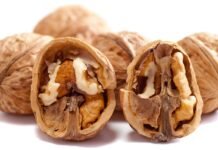Photo by Ella Olsson on Unsplash
A recent study in Bangladesh revealed that approximately 86% of deaths among children living with cerebral palsy are linked to infections. And almost all of the children who died were undernourished, according to the NCBI. Children living with cerebral palsy experience swallowing disorders, oral-motor dysfunction, abdominal pain, and chronic constipation. These problems make it difficult for young children to feed, resulting in malnourishment and health complications, such as loss of body tissues and muscle mass. If you have a child diagnosed with cerebral palsy, it’s crucial to consult your doctor. A medical expert will provide nutritional advice to improve bone health and tips on keeping track of your child’s nutrition and ensuring they eat a balanced diet. Below are some of the nutritional needs for children with cerebral palsy you should know to ensure your child maintains a healthy lifestyle
Proper Nutrition
Like other kids, children living with cerebral palsy need to eat healthy foods and maintain proper nutrition. However, in most cases, they may require more or fewer calories based on their level of physical activities and muscle tone or how tense their muscles are when they are resting. For instance, children with a high physical activity level and muscle tone need to eat more. This is because they use a lot of energy than kids whose muscle tone and activity level are lower. With this in mind, it is crucial to follow the proper guidelines on how to provide proper nutrition. As a general rule, children with CP should eat high fiber and low-fat meals to prevent constipation. Also, ensure your kid consumes a well-balanced diet that consists of cheese, meat, fruits, whole grains, potatoes, green vegetables, a lot of fluids, and oil. If a child has trouble consuming solid fluids, smoothies and juices are perfect substitutes for providing healthy vitamins and calories.
Determine If Your Child Is Consuming Enough Nutrients
In addition to providing healthy meals, it is vital to keep track of the nutrients your child takes. This step entails keeping a record of the foods your kid consumes and consulting with a care team to ensure they get adequate proteins, fluids, calories, minerals, and vitamins. Your child’s care team may consist of a doctor, dietician, and a speech-language therapist. These professionals will evaluate your child’s feeding record to determine if their diet consists of the required foods. The care team will factor in the child’s height, weight, age, physical activity level, and growth trend to decide if they receive sufficient nutrients. They will also use this information to personalize your child’s dietary plan. Having a customized feeding plan helps you provide your child with nutritious meals that help them maintain a healthy weight and grow well. The doctor and dietician will monitor your child’s nutrition intake and growth during regular checkups. If your kid isn’t getting the required nutrients or maintaining a healthy weight, the care team will modify their meal plan. Keep in mind, the nutrition needs for children with cerebral palsy change as they grow. That’s why it’s crucial to follow up on their dietary and nutrition needs with the care team regularly.
Consider Dietary Supplements
Kids with cerebral palsy often require additional nutrition because some medication affects their nutritional intake. In most cases, medicines administered for preventing seizures tend to reduce the availability of vitamins K and D in the body. They also decrease folate, vitamins C, B6, B12, calcium, and magnesium. A lack of these nutrients leads to stunted growth, weight issues, chronic respiratory infections, gastroesophageal reflux, pressure ulcers, and constipation. If your child is deficient in vital vitamins and minerals, your doctor will recommend foods that boost your child’s nutritional needs. They will also prescribe supplements to ensure your kid gets the nutrient they need to grow and remain healthy. Protein, vitamin, and calorie boosters come in tablets and liquids and are purchased in stores. Sometimes they can be prepared at home using formulas created by your child’s dietician. Parents may add thickeners in smoothies, juices, and food for children who experience difficulty swallowing. That way, they can swallow with ease and safely.
Think of Tube feeding
According to the Cerebral Palsy Family Network, caring for a kid with CP can be confusing, as you’ll be required to make tough decisions like using feeding tubes. Tube feeding is recommended when a child with CP cannot feed by mouth due to chewing and swallowing difficulties. Kids who have problems swallowing risk getting food particles in their airways. When this happens, children are likely to experience chronic respiratory illnesses. As much as it doesn’t seem ideal, tube feeding promotes proper nutrition even to kids who can eat meals safely. Some children living with cerebral palsy can eat without difficulty but don’t get enough nutrients. In such situations, feeding tubes come in handy to supplement them with extra vitamins, proteins, calories, and minerals. Generally, tube feeding makes mealtimes less stressful and tiring for kids who have trouble eating. It also gives parents peace of mind that their children get all the nutrients, including fluids needed for proper growth.
Give Foods That Promote Healthy Bones
Too often, children with cerebral palsy have weak bones and muscles, which makes them more prone to fractures. And while supplements come in pills, tablets, and liquid form most of the time, young children can obtain essential minerals and vitamins through some foods. For example, you can supplement your child’s calcium needs with yogurt, milk, and cheese. Exposing your kid to sunlight, feeding them milk, fish, and orange juice is an excellent way to ensure their body produces enough vitamin D. Phosphorus is another essential mineral required to promote healthy teeth and bones. This mineral can be supplemented by consuming whole grains and dairy products like cheeses, milk, and yogurt.
Cerebral palsy is linked to nutrition and growth disorders that lead to malnourishment. If left untreated, malnourishment causes health complications like bone loss and reduced muscle mass. Ensure your child remains healthy, ensure they eat nutritious meals, provide dietary supplements, and use feeding tubes when needed to promote safe and stress-free mealtimes.


























